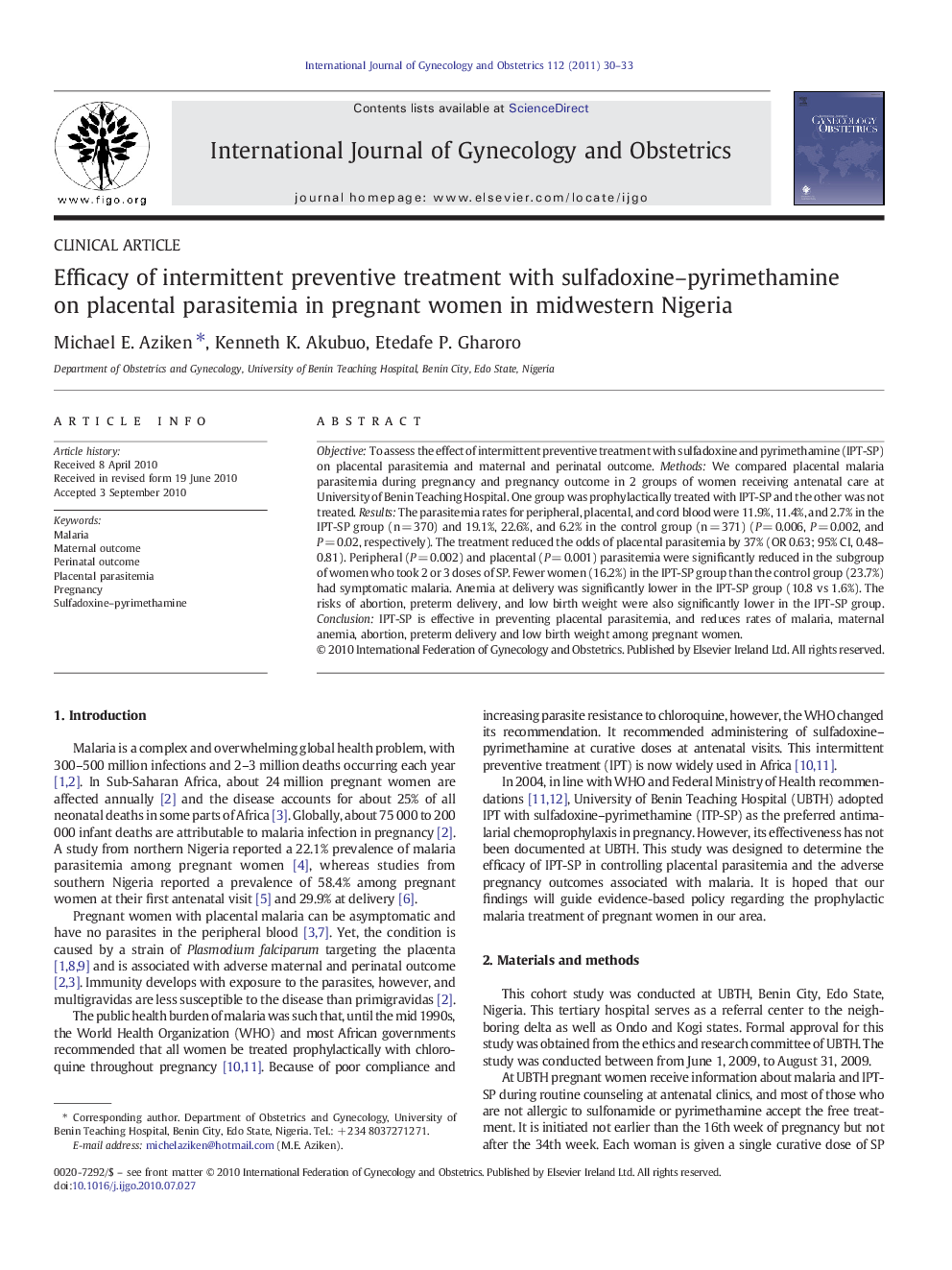| Article ID | Journal | Published Year | Pages | File Type |
|---|---|---|---|---|
| 3949732 | International Journal of Gynecology & Obstetrics | 2011 | 4 Pages |
ObjectiveTo assess the effect of intermittent preventive treatment with sulfadoxine and pyrimethamine (IPT-SP) on placental parasitemia and maternal and perinatal outcome.MethodsWe compared placental malaria parasitemia during pregnancy and pregnancy outcome in 2 groups of women receiving antenatal care at University of Benin Teaching Hospital. One group was prophylactically treated with IPT-SP and the other was not treated.ResultsThe parasitemia rates for peripheral, placental, and cord blood were 11.9%, 11.4%, and 2.7% in the IPT-SP group (n = 370) and 19.1%, 22.6%, and 6.2% in the control group (n = 371) (P = 0.006, P = 0.002, and P = 0.02, respectively). The treatment reduced the odds of placental parasitemia by 37% (OR 0.63; 95% CI, 0.48–0.81). Peripheral (P = 0.002) and placental (P = 0.001) parasitemia were significantly reduced in the subgroup of women who took 2 or 3 doses of SP. Fewer women (16.2%) in the IPT-SP group than the control group (23.7%) had symptomatic malaria. Anemia at delivery was significantly lower in the IPT-SP group (10.8 vs 1.6%). The risks of abortion, preterm delivery, and low birth weight were also significantly lower in the IPT-SP group.ConclusionIPT-SP is effective in preventing placental parasitemia, and reduces rates of malaria, maternal anemia, abortion, preterm delivery and low birth weight among pregnant women.
